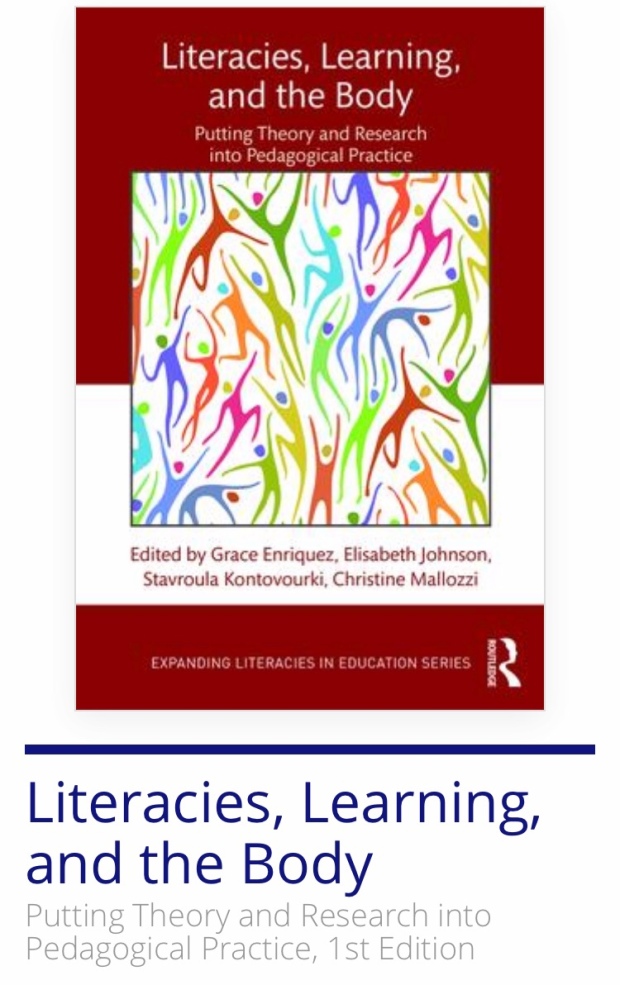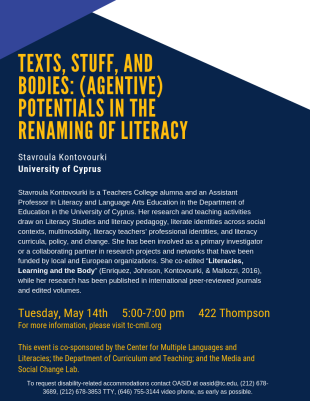Texts, stuff, and bodies: (Agentive) potentials in the renaming of literacy
Literacy studies are continually in motion, as this is documented in reviews of paradigmatic shifts and turns in the field. As part of these shifts, researchers have re-
theorized and often renamed literacy to complicate simple views of literate doing,
acting, and becoming. In this talk, I focus on re-theorizations that have proliferated
over the past five years and opened up spaces to think of literacies as im/material,
embodied, trans-, posthuman, and affective. Doing so, I consider the very act of
renaming as a temporal emergence and invite the audience in a discussion of its
(agentive) potentials not only for reframing literacy research, but also for re-
imagining literacy learning in bounded spaces like schools.
And join us for a workshop (co-sponsored by Media and Social Change Lab) with Dr. Kontovourki on Wednesday, May 15th, 1:00 – 2:30p in 46A HM.
Researching and representing literacies as embodied
This data analysis workshop draws on the theoretical construct of embodiment that
emerged across disciplines and epistemological domains to destabilize sedimented
understandings of selves, pedagogies, and schooling. Drawing on collaborative work
on literacies, learning, and the body (Enriquez, Johnson, Kontovourki, & Mallozzi,
2016), I offer suggestions on how literacy teaching and learning may be theorized as
an entanglement of texts, discourses, and bodies that is disciplined and disciplining,
emotive and affective, re-presentative, and potentially impossible to fully capture.
To engage with such idea, the audience will be invited to consider issues of
researching and representing bodies – of humans, of knowledge, of stuff and matter
– by intra-acting with excerpts of ethnographic and interview data that involve
teachers and students in elementary literacy classrooms.
Dr. Kontovourki is the co-editor of Literacies, Learning, and the Body: Putting Theory and Research into Pedagogical Practice







